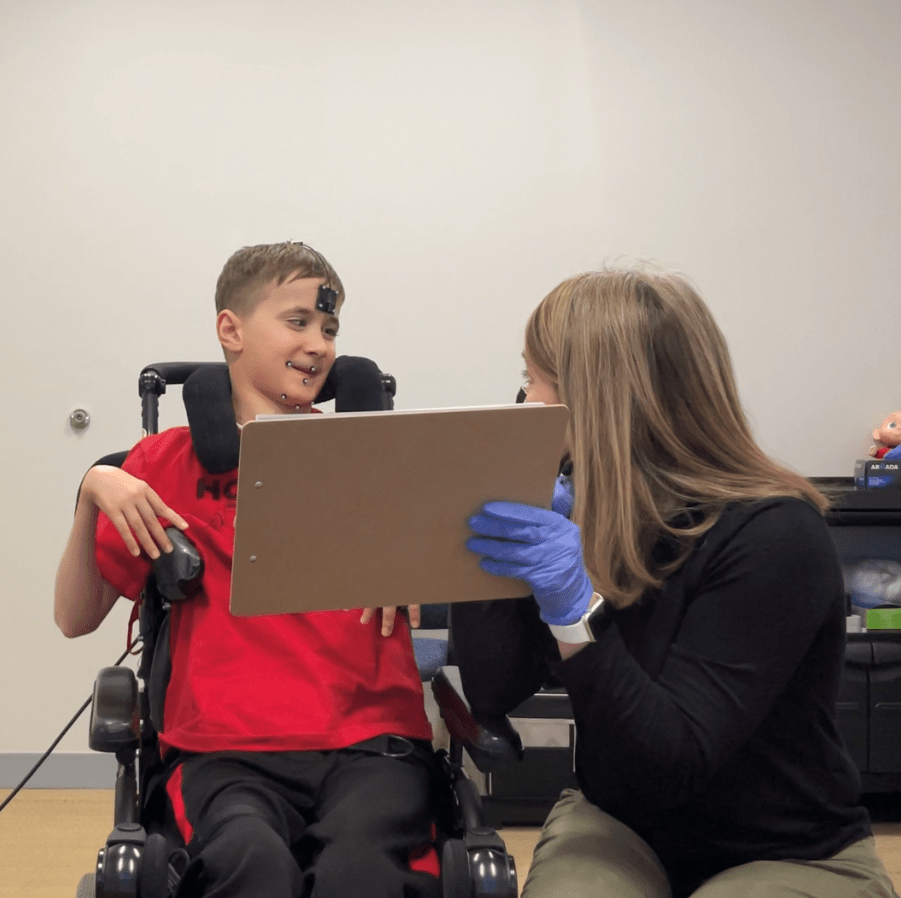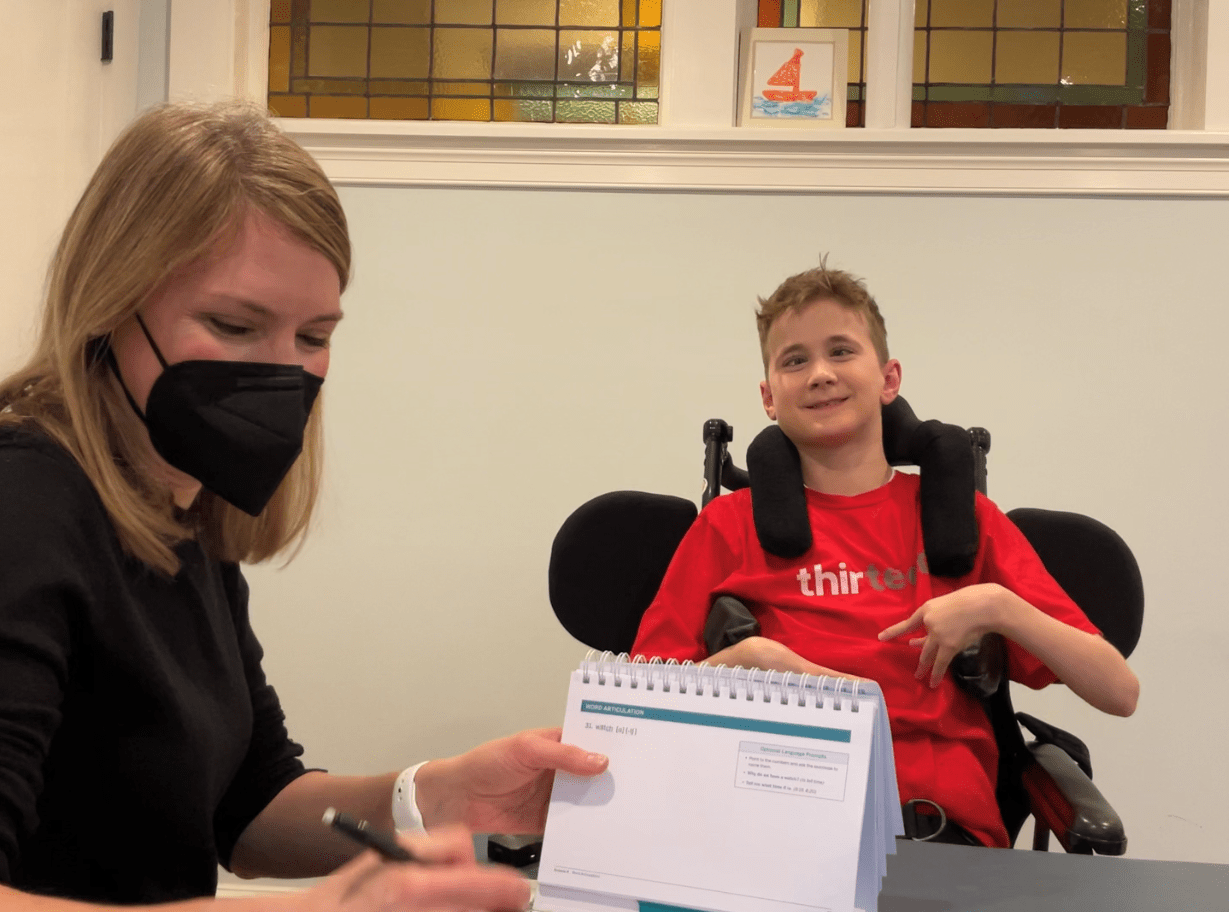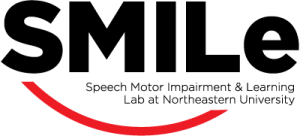Does your child have difficulty being understood?
The SMILe Lab at Northeastern University is looking for children and adolescents with cerebral palsy (CP) between 8-17 years of age to participate in a research study aimed to test the effectiveness of different speech modification strategies for young people with CP.
Interested in learning more?
Why are we doing this research?
Over half of children with cerebral palsy (CP) have reduced speech intelligibility and difficulty communicating due to dysarthria, a speech disorder that affects control of the muscles used for talking. One way to increase speech intelligibility for speakers with dysarthria is through using speech modification strategies, for example, by speaking with a loud voice, or at a slow rate. However, there is limited research on why and how these strategies can lead to improved intelligibility and communication in children and adolescents with dysarthria secondary to CP.
Our research overall seeks to address this gap by 1) comparing the effectiveness of three speech modification strategies for children and adolescents with CP, and 2) identifying acoustic and kinematic markers that predict which strategies will be optimal for individual children and adolescents with CP.


WHO IS ELIGIBLE FOR THIS STUDY?
Individuals with cerebral palsy between the ages of 8 and 17 who meet the following criteria are eligible for this study:
· Have reduced speech intelligibility
· Are able to repeat short sentences (at least 2-3 words in length)
· Speak English as a primary language.
· Have no reported hearing loss
· Are within traveling distance of Boston, Massachusetts
(Note: we will cover parking costs for families to park in a campus garage or handicap accessible lot. We cannot reimburse families for other travel costs or lodging.)
What will participants be asked to do in this study and what will they receive for participating?
The study will take place in 1-2 sessions, lasting about 2.5 hours total. Children and adolescents will play listening and speaking games with the researcher, and their speech will be recorded. Parents will be asked to complete an online questionnaire about their child’s history.
Families will receive up to $100 in Amazon gift cards for participating, and children and adolescents will be able to choose a small age-appropriate prize or a$10 gift card of their own. Parents will also receive a written summary of their child’s visit.
Parking at the university will be paid for.

